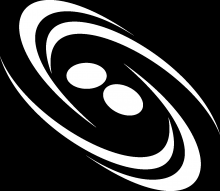
Abstract
Asearch for periodic gravitational waves, from sources such as isolatedrapidly spinning neutron stars, was carried out using 510 h ofdata from the fourth LIGO science run (S4). The searchwas for quasimonochromatic waves in the frequency range from 50to 1500 Hz, with a linear frequency drift f-dot (measured atthe solar system barycenter) in the range -f/tau<f-dot <0.1f/tau, where theminimum spin-down age tau was 1000 yr for signals below 300 Hzand 10 000 yr above 300 Hz. The main computational work of thesearch was distributed over approximately 100 000 computers volunteered by thegeneral public. This large computing power allowed the use ofa relatively long coherent integration time of 30 h, despite thelarge parameter space searched. No statistically significant signals were found.The sensitivity of the search is estimated, along with thefraction of parameter space that was vetoed because of contaminationby instrumental artifacts. In the 100 to 200 Hz band, morethan 90% of sources with dimensionless gravitational-wave strain amplitude greaterthan 10-23 would have been detected.